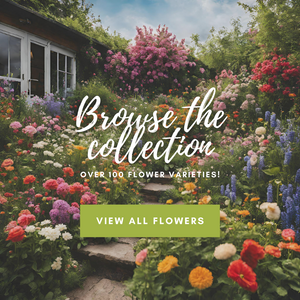
Can I save seeds for next year?
Can I save my seeds for next year?
The short answer is “Of course!” but there are a few key things to keep in mind if you plan on saving seeds for the following year.
To start, when you are buying seed make sure that everything you buy is dated for the current year, as it is illegal to sell outdated seed. Make sure that you are buying from a reputable company that has packets clearly marked with the date the seeds were packed as well as when the germination test was completed. Germination tests allow for the grower to understand what can be expected for the base germination percentage for a specific lot of seeds. Use this to your advantage, if you know what the expected germination rate is, it is easier to plan and compensate during planting.
If you plan on saving seeds for the following year, it is important to remember that seeds, most importantly, must stay dry and cool. Any moisture or extreme temperatures will negatively affect the germination rate of the seed.
When you are planting in the spring, and plan on saving the extra seed, be sure to take extra precaution to prevent the seeds from getting wet. It is easy to reach into the packet with dirt on your hands but in doing so, be careful that you don’t expose the seeds you plan on saving to moisture. Also keep in mind that when you have seeds out for planting, you should try not to let them get too hot. Only taking the seeds you plan on using out to the garden is always a good strategy to prevent any outside factors from harming seed.
For storing your seeds, it is best to keep them in a sealed container, such as a Ziploc bag or Tupperware container, as this is a great option to prevent moisture from getting to them. From there we often recommend keeping the container in a cool basement, or storage room where temperatures remain consistent throughout the year.
Can I freeze my seeds?
Yes, you can freeze your seeds, but there is a lot more that can go wrong compared to other options. When freezing seeds, you risk the possibility of the freezer defrosting, causing the seeds to be exposed to moisture. Also, if frozen seeds are reintroduced to humid air too quickly, it can damage the viability of the seed. If you can provide a sealed container for your seeds, and don’t have to continuously move them in and out of the freezer, then this option might work well for you.
If you’re like me and have more seeds than you know what to do with, don’t worry, you are not alone. Although germination rates typically decline year after year, these preventative measures will ensure several years of viability. Follow these few simple tricks and save your seeds for years to come!




Comments
Leave a comment